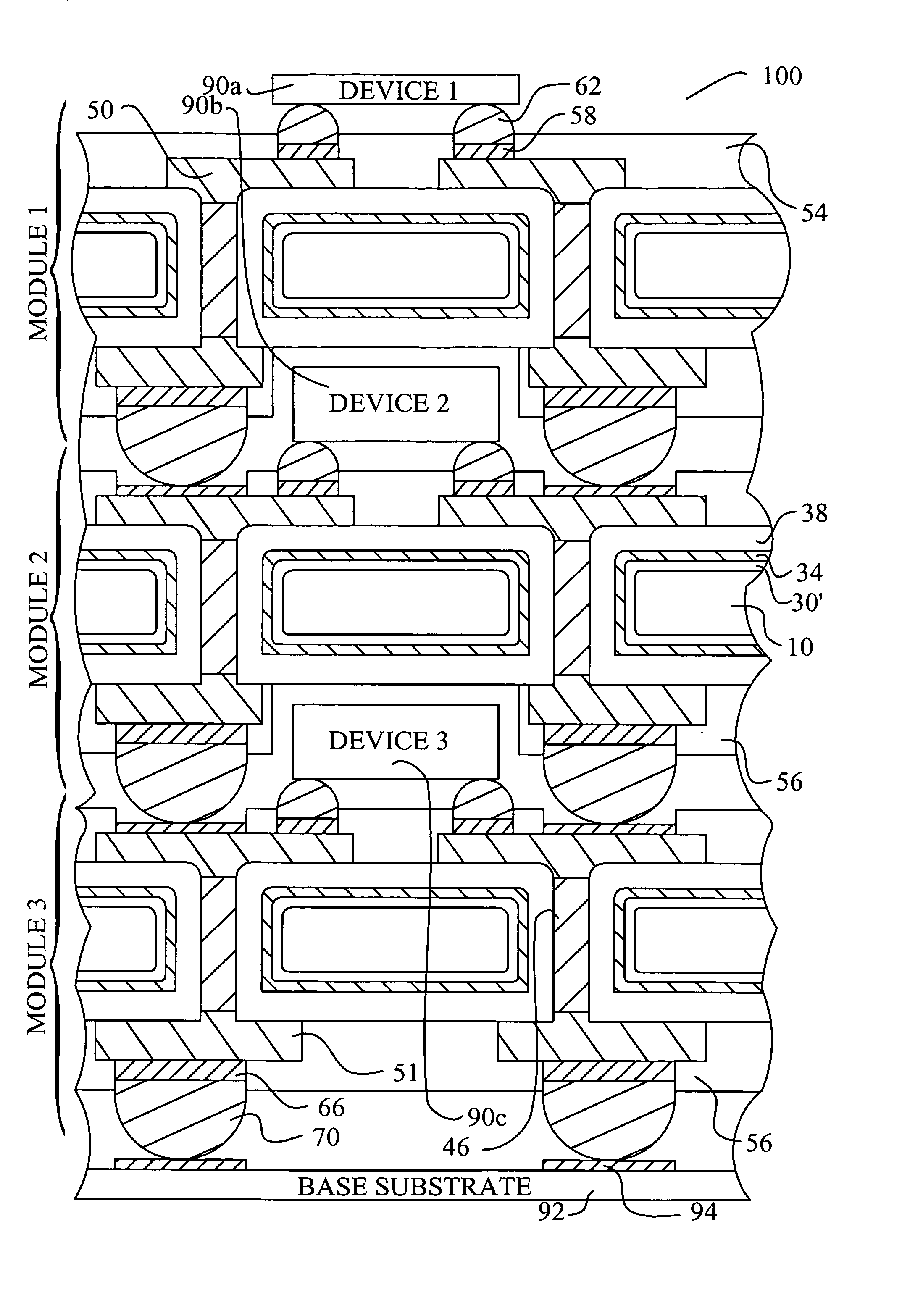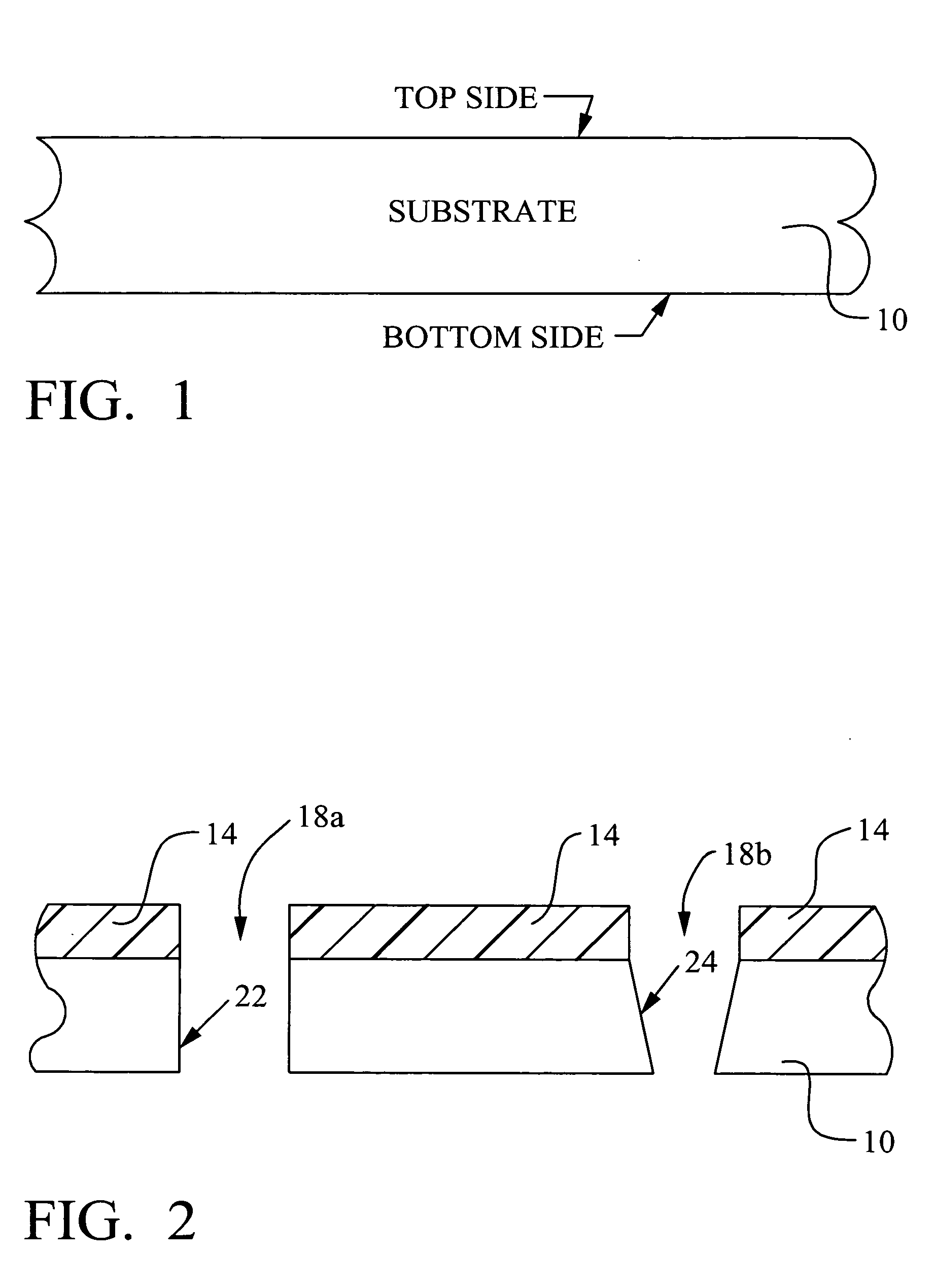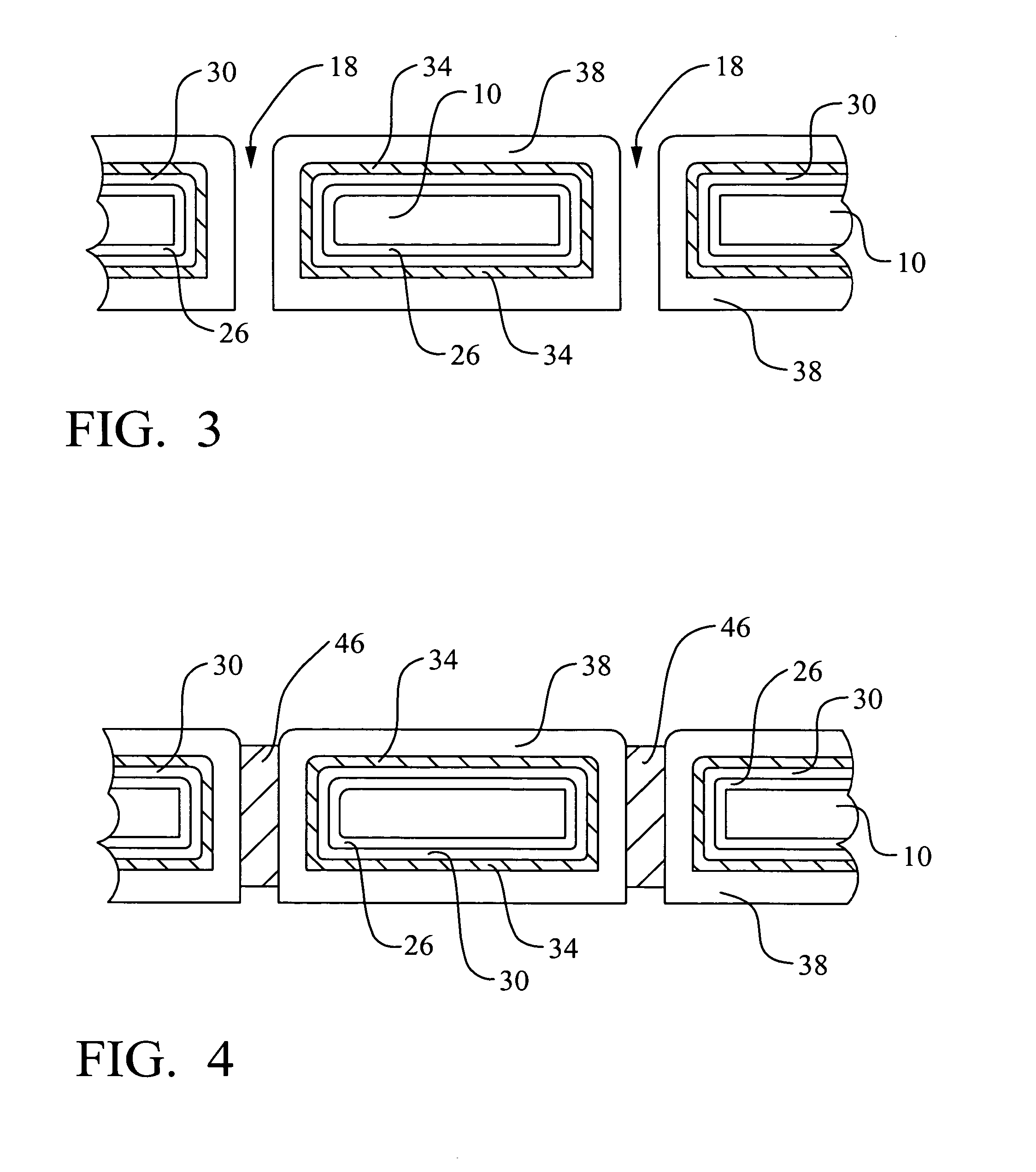RF and MMIC stackable micro-modules
a stackable micro-module and stackable technology, applied in the direction of printed circuit manufacturing, printed circuit aspects, basic electric elements, etc., can solve the problems of significant signal attenuation, vertical integration system, etc., and achieve the effect of not being suitable for very high frequency devices or multiple modules, vertical stacking devices, and high frequency performance of the resulting
- Summary
- Abstract
- Description
- Claims
- Application Information
AI Technical Summary
Benefits of technology
Problems solved by technology
Method used
Image
Examples
Embodiment Construction
[0022] The preferred embodiments of the present invention disclose methods to form interconnection structures in the manufacture of integrated circuit devices. A method to form shielded vias with microstrip ground plane for passing signals between top and bottom sides of substrates is disclosed. A method to form a silicon carrier module for stacking integrated circuit devices is disclosed. A method to form stacked, multiple integrated circuit modules is disclosed. Interconnection and module devices are disclosed. It should be clear to those experienced in the art that the present invention can be applied and extended without deviating from the scope of the present invention.
[0023] Referring now to FIGS. 1 through 9, the first preferred embodiment of the present invention is illustrated. Several important features of the present invention are shown and discussed below. The present invention provides a method to fabricate wafer-level interconnects exhibiting greatly improved RF perfo...
PUM
| Property | Measurement | Unit |
|---|---|---|
| resistance | aaaaa | aaaaa |
| resistance | aaaaa | aaaaa |
| thickness | aaaaa | aaaaa |
Abstract
Description
Claims
Application Information
 Login to View More
Login to View More - R&D
- Intellectual Property
- Life Sciences
- Materials
- Tech Scout
- Unparalleled Data Quality
- Higher Quality Content
- 60% Fewer Hallucinations
Browse by: Latest US Patents, China's latest patents, Technical Efficacy Thesaurus, Application Domain, Technology Topic, Popular Technical Reports.
© 2025 PatSnap. All rights reserved.Legal|Privacy policy|Modern Slavery Act Transparency Statement|Sitemap|About US| Contact US: help@patsnap.com



